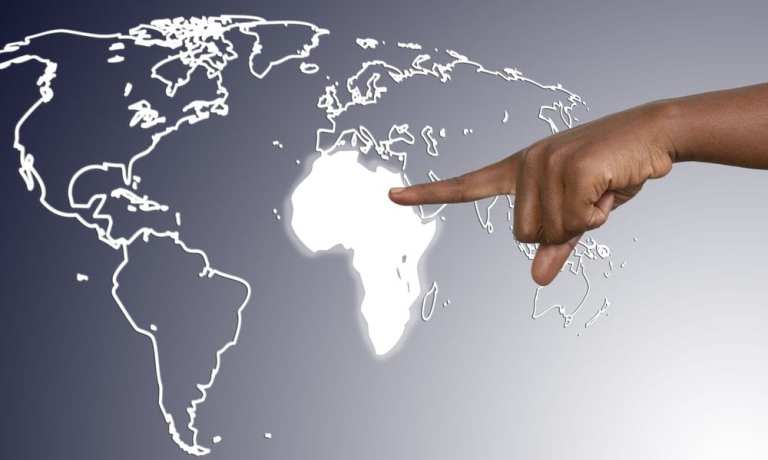Ghana’s Central Bank Pulls Licenses Of 23 Financial Institutions

In August of 2017 Ghana’s government announced that it was going to clean house in its financial services sector — particularly among lenders and second-level financial institutions. And by all accounts they were entirely serious, as it has been an expensive and comprehensive journey. So far the government has paid at least 12 billion cedis ($2.2 billion) for an effort that has seen the number of lenders in the nation reduced by a third to 23, savings and loans companies reduced to 25 from 40, finance houses trimmed to 11 from 19, and micro-finance and micro-credit lenders reduced by roughly 70 percent to 168, from 554.
Capping off the effort last week, Ghana’s central bank announced it had revoked the licenses of 23 savings and loans companies as well as finance houses and appointed a receiver to manage their affairs.
“It is the Bank of Ghana’s assessment that these institutions have no reasonable prospects of recovery, and that their continued existence poses severe risks to the stability of the financial system and the interests of their depositors,” the central bank noted in a statement. The bank went on to note that it had attempted to work with the FIs to move them back to solvency through the actions of their shareholders, but that all closed-down institutions had remained insufficiently capitalized after over a year of attempted restructuring.
The big actions by the central bank have led to a lot of very rapid shifts within the financial services economy in Ghana, and no small amount of finger pointing. The central bank blames the financial institutions; Ghana’s President Nana Akufo-Addo, on the other hand, blames the Bank of Ghana.
“This famous banking scandal has engulfed all of us — if the Bank of Ghana had acted responsibly and dealt with some of these issues like it should have been done, we would have never gotten in the situation where we are now,” the president noted earlier this week when he met the Council of State. He wanted to complain about the billion in public monies that has gone toward stabilizing the crisis.
And, it should be noted, that stabilization is still largely a work in progress.
Some — at least 70,000, according to recent reports in Bloomberg — have found themselves as collateral damage in the cleanup of Ghana’s banking industry, as the actions by the central bank have triggered a run on fund managers, who couldn’t sell their holdings fast enough to meet demand.
Hit particularly hard in the crisis are small, individual investors like Isaac and Bless Boahen, who saved and invested for months so she could fund an economics doctorate. But when it came time to collect their funds, they found they were unable. All in all, around 9 billion cedis ($1.6 billion) are tied up in investments, more than a third of the 25 billion cedis in assets that private fund managers oversee for retail and institutional investors.
“If I knew this would happen, I wouldn’t have gone there,” Issace Boahen told Bloomberg of the 12,000 cedis (~ $2,200) he and his wife are still waiting on. And they will likely be waiting for a while, as Ghana’s market regulator is trying to sort out which laws have been violated, and the nation’s money managers have been blocked from taking in new investment funds for fear they will use them to pay out existing investors.
“The harm has already been done,” Lord Mensah, a senior finance lecturer at the University of Ghana, said by phone. “Assets need to be protected.”
And apart from investors hit hard by funds that may or may not be permanently lost, the great banking restructure is also widely expected to take a large bite out of Ghana’s employment markets, with as many as 4,000 jobs expected to be lost.
The precise number of losses will depend on what exactly the receivers who have taken control of the financial institutions delicensed last week want to do with the assets of the companies they’ve taken control of. That, in turn, will likely depend on the amount of pledged support they receive from the government. According to Tweneboah Kodua Boakye, executive secretary of the Ghana Association of Savings and Loans Companies, the receivers will need some staff of the affected lenders to assist with the liquidation process. From end to end, that process could take a few years, he noted.
There are some signs, however, that the cleanup’s biggest cuts are over and that Ghana’s banking industry might actually return to positive growth this year. Moody’s Investor Service forecasts that now that cleanup efforts are well into effect, lending could grow as much as 15 percent in Ghana this year — and grow on a much more stable basis than in the past.
“Profitability will stabilize this year because banks were focused on raising capital and the regulator was talking to banks to work on asset-quality issues,” Peter Mushangwe, a banking analyst at Moody’s, said in a note. “From next year we expect loan growth to rebound as the economy grows. Fee incomes should do well when confidence returns in the industry after capitalization is over.”
That is some good news in a market that has been sorely lacking it in the last 24 months, and there will likely be many greatly cheered by light appearing at the end of the tunnel they’ve been in for two years. But for people like Isaac and Bless Boahen, whose life plans have been put on hold by the loss of funds they may never see returned, it will take quite a bit longer to rebuild confidence lost.